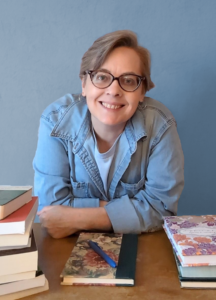I’ve been working on a story, and was a bit concerned my ending felt contrived. In my critique group, we discussed it a little, but I couldn’t come to a clear conclusion. I decided to study the topic and attempt to untangle this particular knot. I thought I’d share the list I came up with on how to identify a contrived plot or scene.
Out of the Blue Behavior
The protagonist (or antagonist) suddenly does something out of character with no explanation. He or she acts in a way that doesn’t line up with what readers know about the character, or they change core beliefs for no discernible reason, or do other odd things for no other reason than to provide a solution to a story problem.
Who’s Driving This Thing?
The story is propelled by circumstantial events happening to the protagonist rather than the protagonist being the catalyst. When I first started writing, I tended to throw obstacles into my story from outside the character, visiting terrible tragedy on them. I was blessed to have a mentor who helped me understand that the protagonist didn’t just need troubles, they must have a goal.
Check to make sure the main character is the captain of his or her own ship. They should try to procure what they want or need to solve their problem. As the story progresses, the protagonist faces obstacles, some of which are overcome, some of which are not.
I Need a Hero
At the eleventh hour, an unlikely hero comes galloping up on a white horse. He wasn’t in the story before, or perhaps only showed up in chapter three for two minutes. If he takes on such a vital role at the conclusion, it might be a good idea to dig into the manuscript in order to develop that character and his storyline. Then, hopefully, the resolution will unfold naturally in a realistic or logical way. This was the fix my current story required. I added interactions with the character, enhanced the setup, and viola!
Too Many Hidden Details
Sometimes it may feel like the plot is contrived because there’s not enough information given up front. If a character appears to make choices simply to get the author out of a plot pickle, a bit of backstory could shed light on the character’s behavior.
Here’s an example. Mrs. Susie Sunshine is the kindest soul you’ll ever meet, but treats her elderly mother with a lack of respect bordering on contempt. The reader is going to want to know why.
If Susie has a deep dark secret in her past that explains her actions, suddenly the story makes sense, and becomes more interesting to boot. Dropping hints about the main character’s backstory at key moments and providing an eventual airing of the issue will make for a satisfying resolution.
Sometimes an undeveloped character leads to a contrived plot. Developing a character may happen before a writer drafts, along the way, in the editing stage, or a combination of all three. It all depends on the author’s process.
The Charmed Life
A character has a charmed life, strolls through the story, never having to work for success. Solutions fall into his lap. He meanders along his way, riding the wave of good luck all the way to his happy ending. The problem here is no conflict, and possibly no goal or stakes.
Convenient Coincidences
There are too many coincidences, where the character gets necessary information by “just happening” to overhear conversations, randomly bumps into the person with the perfect solution or advice, becomes lost only to miraculously end up exactly where they need to be, and so on.
To check for these, I ask myself what would happen in the narrative if there were no coincidences? Is there a way to move the story forward without using the coincidences? Can the characters be given histories to explain these things?
In Defense of Side Trips
Suppose you’re writing a discovery type draft and toss in a random coincidence to bring the story back into line for your vision. Is that a bad thing? Not always. It could be an opportunity to add layers or interest, or to explore an entirely new direction. As long as there’s enough set up and the unfolding events conclude with logic, it might shake out. In this type of writing situation, I might consider dropping in backstory and see how the story develops, then decide if it works.
The Coincidental Ending
Some genres lend themselves to coincidental endings, and some don’t. Check your genre. Even in inspirational fiction, leaning too heavily on divine intervention may fall flat. Readers want a character they can root for, characters who make choices, and then eventually find their way to a solution.
Years ago, I read a novel by a popular author and the concluding chapters suddenly took a weird sci-fi detour to explain the story. The event tying all the threads together felt out of the blue and of another genre. These contortions were necessary for the story to make any kind of sense. But I didn’t buy it. I was not happy, to say the least. I never read another book by this author.
That’s not the reaction I want from my readers. Do you have anything to add to this list about uncovering a contrived plot?
Leave a comment!

Donna Jo Stone is an award-winning author of young adult contemporary and adult historical fiction. She writes about tough issues but always ends her stories on a note of hope. Her novels are about common struggles and finding the faith to carry on through those battles.


 We love helping your growing in your writing career.
We love helping your growing in your writing career.

No Comments